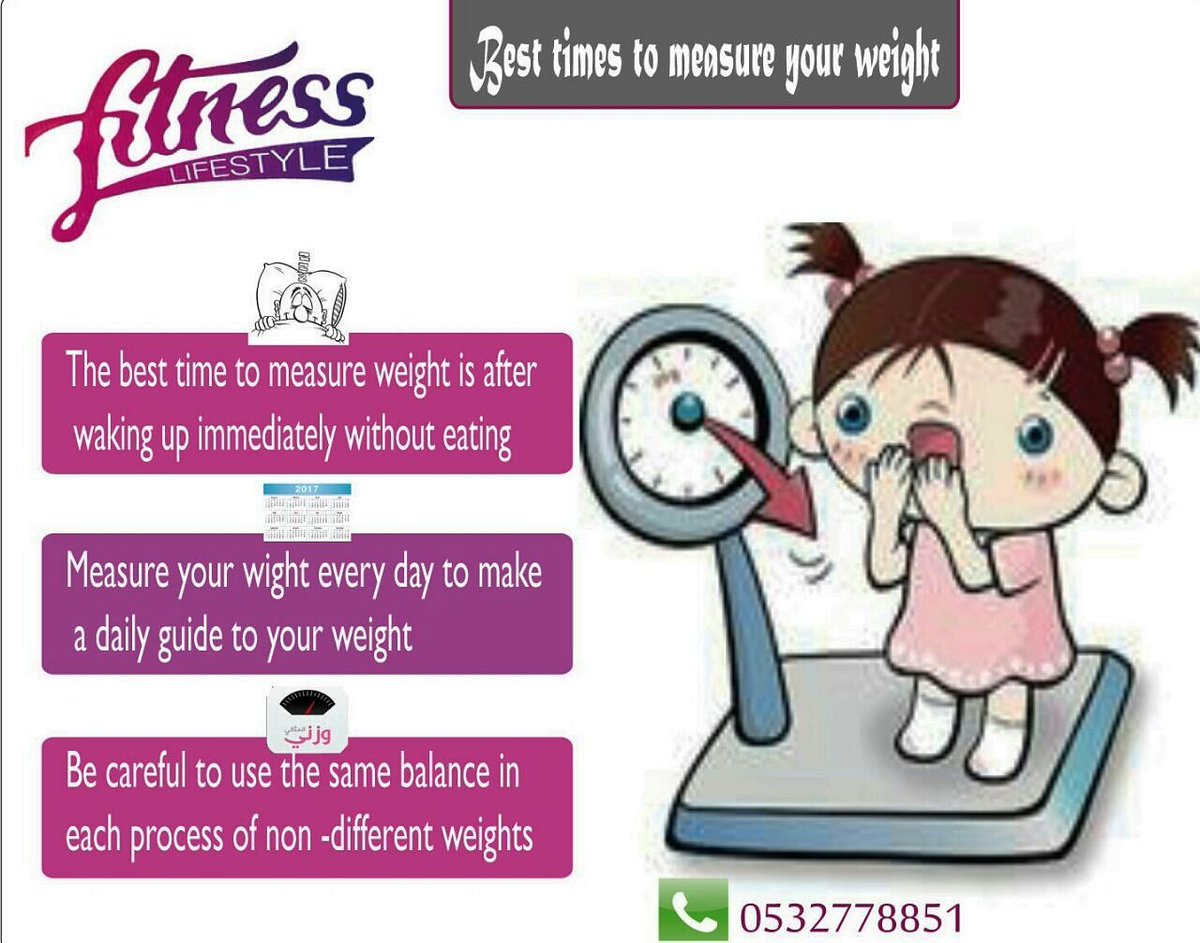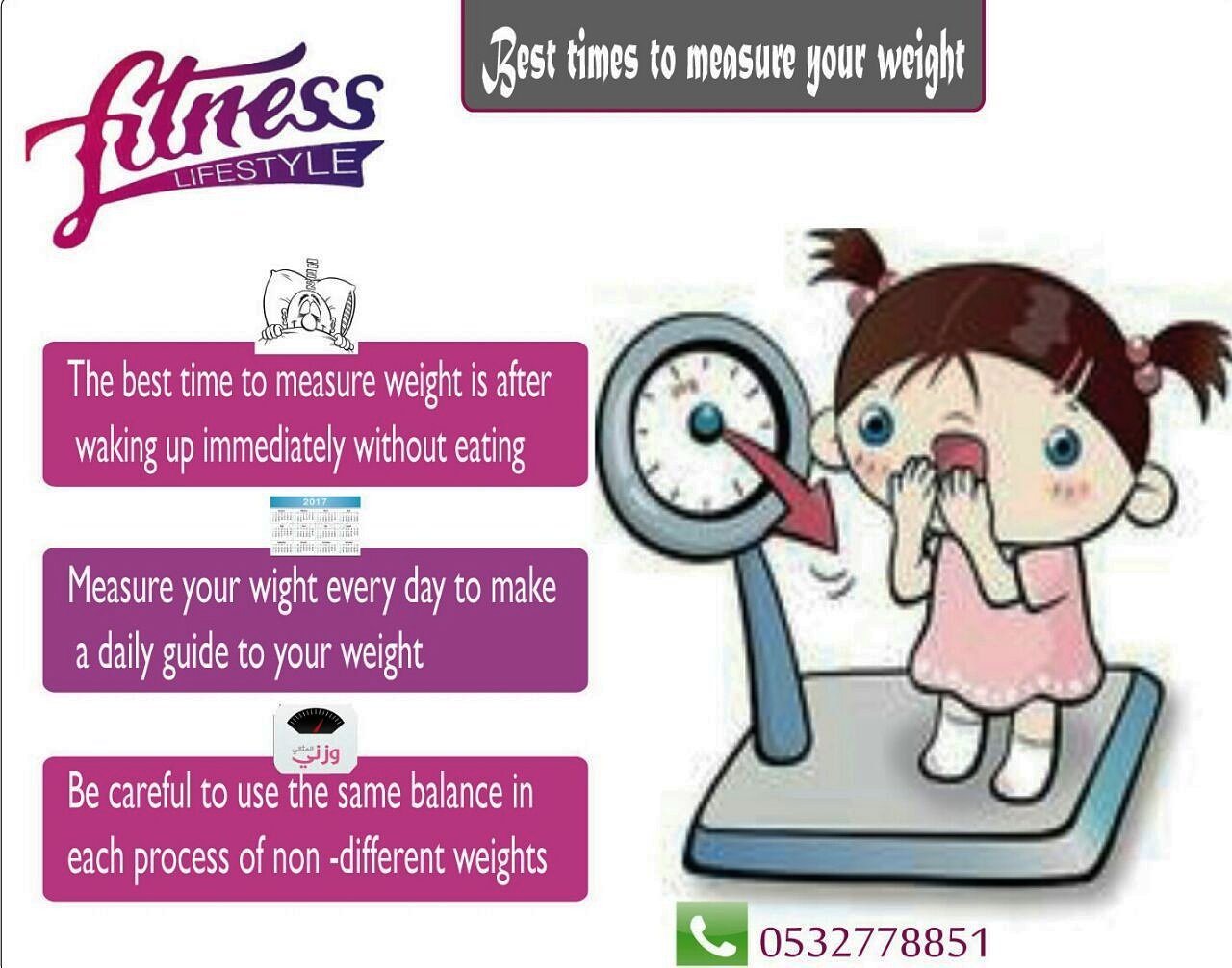The best time to measure your weight is first thing in the morning, before eating or drinking anything. This is because your body has had time to digest the food and drinks consumed the day before, resulting in a more accurate measurement.
Additionally, weighing yourself in the morning allows for consistency and eliminates the variables of food and fluid intake throughout the day. By following this practice, you can track your weight effectively and monitor any changes over time.
Importance Of Timing
When it comes to measuring your weight, the timing of the measurement can significantly impact the results. Understanding the best time to weigh yourself can provide more accurate and consistent readings, helping you track your progress effectively. Several factors affect our weight throughout the day, and being mindful of these can play a crucial role in obtaining reliable measurements.
Factors Affecting Weight Throughout The Day
Various factors can cause fluctuations in weight during the day, including food and fluid intake, physical activity, and changes in body composition. These factors can lead to noticeable differences in weight within a day, making it essential to choose the most appropriate time for measuring weight.
Difference In Weight: Morning Vs. Night
Typically, individuals tend to weigh less in the morning compared to the evening. This disparity is influenced by factors such as overnight fasting, elimination of waste, and reduced fluid retention. The difference in weight between morning and night can be significant, underscoring the importance of consistency in timing when measuring weight.

Credit: twitter.com
Best Time To Measure Weight
First Thing In The Morning: Ideal Conditions
Measuring your weight first thing in the morning, under certain conditions, can provide the most accurate results.
Reasons For Morning Measurement
- Optimal Digestive State: Your body has had time to process food and drinks consumed the previous day.
- Consistent Conditions: Less variation in weight due to factors like meals and physical activity.
- Baseline Weight: Reflects your true weight, unaffected by daily fluctuations.
Weight Fluctuations
The best time to measure your weight is first thing in the morning, after using the restroom and before eating or drinking anything. This is because your body has had time to digest and process the food and liquids from the previous day.
When is the Best Time to Measure Your Weight? Weight Fluctuations Weight fluctuations throughout the day are normal and can be attributed to various factors such as food and fluid intake, physical activity, and body composition changes. Understanding these fluctuations and the best time to measure your weight can provide more accurate and consistent results. Evening Weight: Factors at Play In the evening, your weight tends to be at its highest, primarily after dinner and before bedtime. Throughout the day, your body accumulates food and water, contributing to an increase in weight. Factors such as late-night snacking and the consumption of salty foods can also impact your evening weight. Understanding these factors can help in interpreting weight fluctuations and making adjustments to your routine. Water Retention Impact on Weight Water retention can significantly influence your body weight, leading to fluctuations that may not necessarily reflect changes in body fat. Factors such as high sodium intake, hormonal changes, and certain medications can contribute to water retention. Measuring your weight at different times of the day, particularly in the morning and evening, can provide insights into the impact of water retention on your weight fluctuations. It’s essential to consider these factors when determining the best time to measure your weight to achieve accurate and consistent results. Sources: – Quora: [Link] – Cleveland Clinic: [Link] – Consumer Reports: [Link] – Healthline: [Link]Expert Recommendations
To obtain the most accurate measurement, it is recommended to weigh yourself first thing in the morning, prior to eating or drinking anything. This allows your body time to digest and eliminates the effects of food and fluid intake throughout the day.
Morning Vs. Night Tracking
When it comes to tracking your weight, there is often a debate about whether it is better to measure in the morning or at night. To provide clarity, experts recommend weighing yourself in the morning. This is because, throughout the day, your weight can fluctuate due to various factors such as food and fluid intake, physical activity, and changes in body composition.
In the morning, your weight tends to be lower compared to at night. This can be attributed to the effects of overnight fasting, elimination of waste, and reduced fluid retention. By measuring your weight in the morning, you get a more accurate reflection of your body’s true weight.
Consistency And Accuracy In Weighing
Consistency in weighing yourself is crucial to accurately track your weight over time. Experts recommend establishing a routine and weighing yourself at the same time every day. This routine should ideally be in the morning, after you have gone to the restroom but before consuming any food or drinks.
This timing allows your body enough time to digest the previous day’s intake while you were sleeping. It also ensures that you are measuring your weight on an empty or relatively empty stomach, providing more consistent and accurate measurements.
In addition to consistency, it is important to use the same scale for weighing yourself. Different scales may provide slightly different readings, leading to inaccurate tracking of your weight. Choose a reliable scale and place it on a flat and stable surface for consistent results.
By following these expert recommendations, you can ensure that you are measuring your weight at the optimal time and in a consistent manner, allowing for accurate tracking of your progress.
Optimal Frequency Of Weighing
Discover the optimal frequency for weighing: first thing in the morning. Your weight tends to be lower due to overnight fasting and reduced fluid retention, offering more accurate results.
When it comes to determining the optimal frequency of weighing yourself, there are various factors to consider, including your weight loss or maintenance goals, lifestyle, and psychological well-being. Weekly Weigh-Ins: Benefits Weekly weigh-ins offer various benefits, such as providing a consistent measure of your progress, helping to identify patterns and trends in your weight fluctuations, and offering motivation to stay on track. Tips for Consistent Weighing To ensure consistent and accurate weighing, consider the following tips: – Choose a specific day and time each week to weigh yourself, such as first thing in the morning before eating or drinking. – Use the same scale for each weigh-in, ideally on a hard and flat surface for accurate measurements. – Wear minimal clothing or weigh yourself without any clothing for the most precise results. – Aim to maintain a consistent routine in terms of food intake and physical activity leading up to each weigh-in for more accurate and comparable measurements. By adhering to these tips, you can establish a reliable and meaningful routine for monitoring your weight.
Credit: twitter.com
Midweek Measurement
The best time to measure your weight is in the morning, before you eat or drink anything. This is because your body has had time to digest the food and drinks from the previous day. Weighing yourself in the morning can provide a more accurate measurement of your weight.
Wednesday Weigh-in: Rationale
Making Wednesday your designated weigh-in day can offer numerous benefits for tracking your weight progress effectively. By choosing midweek as your measurement point, you can get a more consistent and reliable representation of your weight fluctuations throughout the week. This strategic approach helps you stay accountable with your health goals and allows for adjustments before the weekend indulgences kick in.
Tracking Progress Effectively
Consistent midweek weigh-ins provide valuable insights into your weight trends over time. This regular measurement schedule enables you to observe patterns and make informed decisions about your diet and exercise routines. By tracking your progress midweek, you can stay motivated and focused on achieving your desired weight goals.
Choosing The Right Equipment
Selecting A Reliable Scale
Before starting a weight measurement routine, it’s crucial to select a reliable scale that provides accurate results. Look for a digital scale with a high-quality precision sensor to ensure precise weight measurements. Analog scales may not offer the same level of accuracy and consistency as their digital counterparts. Choose a scale with a wide, stable platform to ensure safety and comfort during measurements.
Ensuring Proper Setup
Once you have chosen a reliable scale, it’s important to ensure proper setup to obtain accurate measurements. Place the scale on a flat and level surface, avoiding uneven flooring or carpets that could affect the readings. Check the scale’s battery regularly to ensure reliable operation, and calibrate the scale if necessary to maintain accuracy over time.

Credit: www.healthline.com
Frequently Asked Questions On When Is The Best Time To Measure Your Weight?
Do You Weigh More At Night Or In The Morning?
Weight tends to fluctuate throughout the day due to factors like food and fluid intake, physical activity, and body composition. Generally, people weigh less in the morning because of overnight fasting, elimination of waste, and reduced fluid retention. The best time to weigh is in the morning before eating or drinking.
When Can You Measure Your True Weight?
The best time to measure your true weight is in the morning, before eating or drinking.
What Time Is Your Weight The Highest?
Your body weight is typically highest in the evening, after eating and before sleeping. Weight fluctuates throughout the day due to food, fluids, and activity. For the most accurate measurement, weigh yourself in the morning after using the restroom and before eating or drinking.
Should I Track My Weight In The Morning Or Night?
The best time to track your weight is in the morning. Your body has had time to digest food and drinks from the previous day, leaving your stomach relatively empty. This will provide you with the most accurate result.
Conclusion
Finding the best time to measure your weight is crucial for accurate results. Weighing yourself in the morning, before eating or drinking, offers the most reliable measurement. This routine allows your body to reset, reflecting a more consistent weight. Establish a morning weighing habit for precision and tracking progress efficiently.
